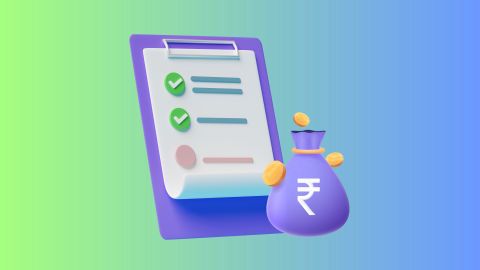A personal loan is an unsecured loan, which involves borrowing money for individual needs. A loan agreement is essential when opting for a personal loan to formalise the arrangement. It specifies the terms such as loan amount, interest rate, and repayment terms. It ensures legal enforceability, clarity, and protection for both the borrower and lender, reducing the risk of misunderstandings and disputes.
What is a personal loan agreement?
loan A personal loan agreement is a legal document that includes the terms and conditions of a loan between an individual lender and borrower. This contract serves as a formal agreement, specifying crucial details such as the loan amount, loan interest rate, repayment schedule, and any collateral involved. Essentially, it outlines the expectations and responsibilities of both parties, ensuring transparency and preventing misunderstandings. A personal loan agreement is vital for establishing a clear understanding between the lender and borrower, offering legal enforceability in case of disputes. Whether the loan is informal between acquaintances or involves financial institutions, this agreement acts as a protective measure, providing a written record that safeguards the interests of both parties involved in the lending transaction.
Why do you need a loan agreement?
The main objective of a personal loan agreement is to create a comprehensive understanding of the terms that govern the loan. Continue reading to discover further reasons for the necessity of having a loan agreement:
- Legal protection: A loan agreement provides legal protection for both the lender and the borrower. It serves as a legally binding contract that can be enforced in case of disputes or non-compliance with agreed-upon terms.
- Clarity and transparency: The agreement outlines the terms and conditions of the loan, including the loan amount, interest rate, and repayment schedule. This clarity helps prevent misunderstandings and ensures that both parties have a clear understanding of their obligations.
- Enforceability: Without a written agreement, it can be challenging to prove the terms of the loan in a legal context. A well-drafted loan agreement provides a clear record that can be used as evidence in case of disagreements or non-payment.
- Establishes expectations: The agreement sets expectations for both the lender and the borrower, detailing responsibilities, deadlines, and consequences for non-compliance. This helps in managing expectations and avoiding potential conflicts.
- Risk mitigation: For lenders, a loan agreement may include provisions for collateral or co-signers, reducing the risk of non-repayment. This helps protect the financial interests of the lender.
- Trust building: The transparency provided by a loan agreement builds trust between the parties involved. Knowing that the terms are documented and agreed upon fosters a sense of trust and reliability in the lending relationship.
- Informed decision-making: For borrowers, having a written agreement allows for informed decision-making. They can review the terms, understand the financial commitment, and make responsible choices regarding the loan.
- Formalises the lending arrangement: Whether the loan is between individuals, friends, family, or involves financial institutions, a loan agreement formalises the lending arrangement, providing a structure to the transaction.
In conclusion, a personal loan agreement plays a vital role in formalising lending arrangements and safeguarding the interests of both lenders and borrowers. It sets a legal framework, defines explicit terms, and mitigates potential disputes. Whether the loan involves individuals or financial institutions, having a written agreement is essential for ensuring transparency, clarity, and enforceability in a legal context.
Apply for our Personal Loan and get the deal that fits your requirements.




